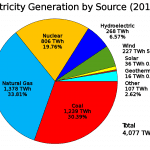In recent years, there has been much print about, What is an Evangelical? It’s largely because Donald Trump became president partly due to his large political support from evangelicals. That was quite ironical since Trump seemed to be anything other than a Christian or an evangelical. I believe that Trump has used evangelicals for his political purpose. And one way he did it was to choose the very evangelical Mike Pence as his vice president. About 25% of all adult Americans during the 2010s claimed to be “evangelical.” So, Trump merely tapped into a huge voting bloc that had been growing for decades and that previously had been ignored by politicians.
 Trump’s relationship with evangelicals was transactional. That is, he promised them he would try to overturn Roe v. Wade even though he previously had been pro-choice. And he promised them he would try to install conservative judges on the Supreme Court. But this evangelical support of Donald Trump as the U.S. president has hurt evangelicals’ reputation and their message not only in the U.S. but in the world. My next book, What Happened to Trump Was in that Bible, will be published next week and available on amazon.com
Trump’s relationship with evangelicals was transactional. That is, he promised them he would try to overturn Roe v. Wade even though he previously had been pro-choice. And he promised them he would try to install conservative judges on the Supreme Court. But this evangelical support of Donald Trump as the U.S. president has hurt evangelicals’ reputation and their message not only in the U.S. but in the world. My next book, What Happened to Trump Was in that Bible, will be published next week and available on amazon.com
I’ve blogged over a dozen times about U.S. evangelicals and sometimes about their political support of Trump. Here are just two such posts: here and here. The first one is about whether or not I should still call myself an evangelical since the 2008 publication of my book, The Restitution of Jesus Christ (600 pp.). It is a thorough examination of the Bible that cites over 400 scholars in which I show that the Bible does not say Jesus is God. I have written and published eight theological books now, and this is my magnum opus.
I was a Trinitarian Christian and an evangelical for twenty-two years. (I still worship in evangelical churches.) I therefore believed Jesus is God because that is what I was taught. But in the winter of 1979-1980, I had a moment of enlightenment in my study room in my home while reading Jesus’ Olivet Discourse. Therein, he says of his future second coming, “But of that day and hour no one knows, neither the angels of heaven, nor the Son,” referring to himself, “but only the Father” (Matthew 24.36; cf. Mark 13.32 NRSV).
I also believed in the hypostatic union, which I also had been taught in my church. It means that Jesus is both man and God by having two natures–a human nature and a divine nature. Thus, I was also taught that when Jesus said this, he meant he did not know in his human nature the time of his return, but he really did know in his divine nature because that makes him God, and God knows everything.
So, when I read this saying of Jesus that day, and I knew it quite well, I thought of something I had never noticed before. And because of it, I blurted out verbally while I was there alone in my office, “That makes Jesus look like a liar! He said he didn’t know when he would return, but he really did know because he is God.” After pondering this for a while, I said out loud again to myself, “I WILL stand on the integrity of Jesus. I must look into this.”
That was quite an understatement. I estimate that for the next 28 years, I read about a thousand books on the identity of Jesus and scoured libraries all over this country, much of the time as I competed as a professional golfer on the PGA Tour. I visited libraries to read the critical texts on this subject in perhaps thousands of Bible commentaries. The end result of this massive study was my book, The Restitution of Jesus Christ. When my friend Dr. Dale Allison read the manuscript, in about 2007, a year before it was published, and he made recommendations for some minor changes which I then incorporated, he first said, “you have done a lot of work.” And that comes from a professor who supervises the theological dissertations of doctoral students.
(This is the first time I have stated publicly about Dale having read and critiqued this book manuscript. I have withheld this information for nearly fifteen years now. Dale had been one of our guest speakers at the annual Kermit Zarley Lectures held at North Park University.)
So, nearly three years later, in June, 1982, while I was playing in the U.S. Open at Pebble Beach Golf Club–my favorite golf course and favorite tournament–I made my decision that the Bible does not say Jesus is God. Yet I have always adhered to all else the church has proclaimed about our Lord and Savior Jesus Christ, including his virgin birth, miracles, sinless life, atoning death for our salvation, and his resurrection from the dead and heavenly ascension. And I have a fairly conservative view of the Bible.
I maintain that what makes a person a genuine Christian is believing Jesus is the Christ/Messiah (=the Son of God), that he died for your sins, that God raised him from the dead, and you make Jesus Lord of your life. That’s what it means to believe in Jesus as your Lord and Savior, and that’s what evangelicalism is supposed to be about. It’s about having a personal conversion experience, called being “born again,” due to this faith in Jesus as Lord and Savior, not about faith that Jesus is God.
Dr. Thomas Kidd, a professor of Church History at Baylor University, wrote a book published in 2019 entitled What Is an Evangelical? (Yale University Press, 200 pp.). I haven’t read the book, but soon after its publication he spoke near where I live, at Phoenix Seminary. The school’s president, Dr. Brian Arnold, interviewed Dr. Kidd about this book, and the interview is available online. Both men regard themselves as evangelicals. I often study at the Phoenix Seminary library.
Dr. Arnold began the interview by saying that due to Donald Trump Republican politics, “Christians are not uniting around the gospel as much as I would hope.”
Kidd agreed, and the discussion soon turned to the definition of an evangelical type of Christian. Kidd said, “evangelion in Greek just means good news,” which is quite right. He soon added, “there’s some professing Christians that we [evangelicals] cannot be unified with because they’re doctrinally aberrant or whatever. . . . you know, if they don’t believe in the resurrection [of Jesus], they don’t believe in the trinity, or something like that. I mean, you can’t partner with people over those sorts of issues.”
But Dr. Kidd, the gospel, meaning “good news,” is about Jesus dying for our sins and being raised from the dead. That’s how the apostle Paul explains the gospel when he writes to the Corinthian believers, “Now I would remind you, brothers and sisters, of the good news [=gospel] that I proclaimed to you, which you in turn received, in which also you stand, through which also you are being saved, if you hold firmly to the message that I proclaimed to you–unless you have come to believe in vain. For I handed on to you as of first importance what I in turn received: that Christ died for our sins in accordance with the scriptures, and that he was buried, and that he was raised on the third day in accordance with the scriptures” (1 Corinthians 15.1-4 NRSV).
There is nothing in the New Testament about the gospel being that God is a Trinity of persons or that Jesus is God. And notice that Paul says that the Christians before him handed to him this message “of first importance.” Indeed, this is what is essential to being a Christian and not believing God is a three persons or that Jesus is one of those three persons and therefore God. Not at all! Yes, you will find that in church creeds, but not in the Bible. And it is the Bible that is supposed to be most important to evangelicals. If church creeds contain any declarations that are contrary to the Bible, then those church creeds are wrong, plain and simple!
Regarding Dr. Kidd’s assertion not to partner with people like me, whom he seems to regard as not only a non-evangelical but a non-Christian as well, the apostle Paul further states, “if you confess with your lips that Jesus is Lord and believe in your heart that God raised him from the dead, you will be saved” (Romans 10.9). Nothing here about Jesus being God. It’s plain and simple. Truly believe this–and I would add keep on believing it as Paul says in 1 Cor 15–and you are saved.
Now, let’s take it a step further and consider what the author of 1 John says about Christian fellowship. He writes, “Everyone who believes that Jesus is the Christ has been born of God” (1 John 5.1). Again, nothing about Jesus being God here. For Dr. Kidd to say that evangelicals can’t partner with non-Trinitarians, is that some kind of hatred of the brethren? For, the author of 1 John also writes, “Those who say, ‘I love God,’ and hate their brothers and sisters, are liars; for those who do not love a brother or sister whom they have seen, cannot love God whom they have not seen” (1 John 4.20).
Of course, I don’t mean to pick on only Dr. Kidd since almost all Christians have been taught, and therefore believe, that God is three persons and Jesus is one of them. It’s just that Dr. Kidd has written this book, What Is an Evangelical? and that also gets into what is a Christian. I really don’t care that much whether or not I’m called an evangelical, but I care a lot about whether or not I’m called a Christian.
For example, when I was in the Army Reserves in my twenties, I processed through a two-week summer camp at the Yakima Firing Range. The sergeant at the desk, who was merely filling out forms, asked me what my religion was. I said, “Christian, sir.” He said, “Zarley, you can’t be a Christian. You have to be a Catholic, or a Baptist, or a Methodist, or something like that.” I said, “Sir, I’m none of those things. I’m a Christian.” He looked at me as if disgruntled and wrote down “Christian.”
The main feature about evangelicalism is that it has always claimed to be based on the Bible more than on church creeds. And I further maintain that the thesis of my book is what the early Christians, most of whom were Jews, believed about God and Jesus, that God is a single person and that Jesus is Savior and Lord, but not God. Furthermore, the word “trinity” isn’t even in the Bible. And in the New Testament gospel sayings of Jesus, he never says expressly that he is God. Moreover, he said of God, “The Father is greater than I” (John 14.28). That alone totally nullifies the Trinity.
Moreover, right before Jesus was arrested and condemned, he prayed to God, “Father, . . . this is eternal life, that they may know you, the only true God, and Jesus Christ whom you have sent” (John 17.3). That should be enough to throw out the Trinity doctrine. The Bible says repeatedly that there is only one true and living God, in distinction from all others who may be called “god,” and Jesus called him “Father.”
The church doctrine of the Trinity wasn’t even developed until the late 4th century AD, thus over 300 years after the Christ event. Concerning all those professing Christians who had never heard of God being a Trinity or of Jesus being equally God as the Father is God, were they not genuine Christians? The Nicene Creed of 325 AD says if you don’t believe Jesus is “very God of very God,” meaning just as much God as the Father is God, you are “anathema”–condemned to hell. That includes those earlier Christians.
I also contend that when we Christians get to glory, if we could ask the apostles Peter or Paul if they believe God is a Triune Being and that Jesus is God, they would look at us puzzled and say something like, “What are you talking about?”
When it comes to defining evangelicalism, for the past four decades church historian and evangelical Dr. David Bebbington of England has been the go-to guy. See my post on this here in which I tell about his Bebbington Quadrilateral and discuss again if I am an evangelical. And the National Association of Evangelicals endorses Bebbington’s Quadrilateral, and nothing else, as a sound definition of evangelicalism. And I subscribe fully to it. Yet it does not include anything about Jesus being God or God being a Trinity.
I contend that evangelicalism needs to go back to the beginning and get this right. Church fathers in the third and fourth centuries were departing from the early Christian message by claiming Jesus was God. The apologists, as they are called, were saying then that Jesus was God, though of a lesser deity than the Father was. I called that belief “big God, little God.” Then in the early third century, the Council of Nicea said Jesus was just as much God as the Father was God. And in the late fourth century, church fathers said God was a Trinity of persons.
It’s all a departure from the New Testament, which was not officially put together and recognized as such until this later time as well. Yet it is the New Testament that evangelicals must use as the ultimate guide in these matters. It says Jesus is Lord and Savior, but not God. (And when I say New Testament, I mean the Greek New Testament, since versions of it, such as English Bibles, might have some faulty translations of particular texts due to the translators’ bias in being Trinitarian.)














